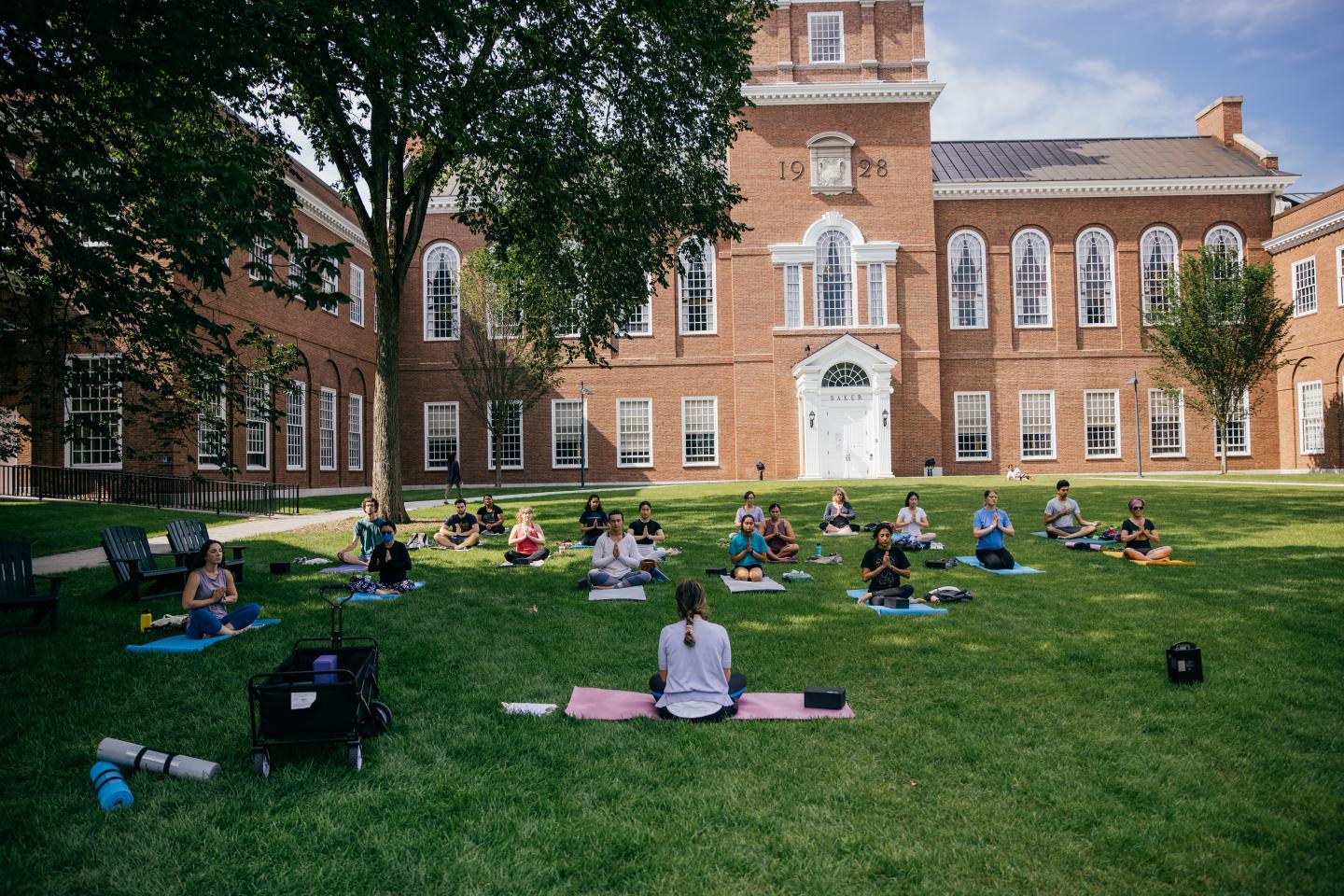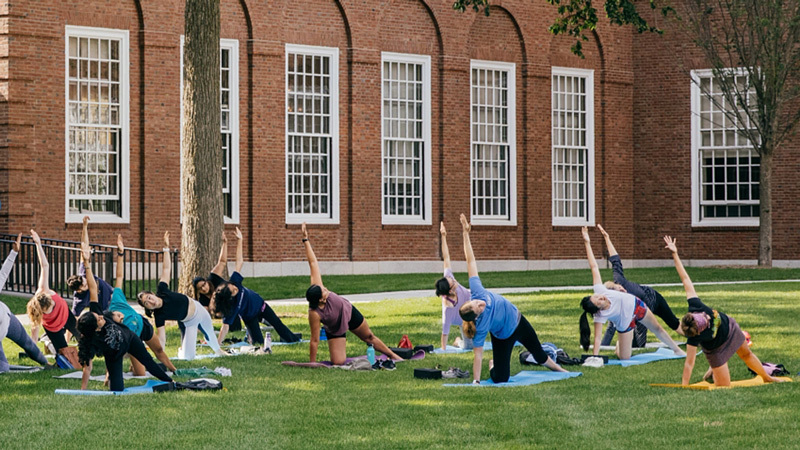Showing Strong Support for Mental Health
An unrestricted gift from Brian Wheelan ’95 will help enhance mental health resources for the Dartmouth community

Brian Wheelan ’95 has made an unrestricted gift of $500,000 toward a $18.6 million campaign goal to improve student health and well-being services at Dartmouth. The campaign priority will fully fund several initiatives, including expanded mental health and suicide prevention outreach programs.
Wheelan served as director of Medicaid for the State of Massachusetts from 2004 to 2006. Since then, he has devoted his career to mental health, serving as president of Beacon Health Options, a behavioral health company and now CEO of Transformations Care Network, a community mental health company operating 25 clinics in the eastern U.S.
Why did you decide to make this gift?
I’ve spent the last 30 years working in public mental health, so supporting mental health programs at Dartmouth was a natural thing to do, and a great way to be useful to the College.
How did you get into mental health and why is it important to you?
I started my career in government, soon began working in Medicaid, and wound up running Medicaid for the State of Massachusetts. I discovered that the policy side of mental health is really challenging. I also found out that most mental health in America is taxpayer funded, like 65 percent, but insurance has historically been very problematic and doesn’t always cover it.
Over the 20 years that I was on the payer side, we slowly made changes to where today mental health is mostly covered, it's covered without limits, covers addiction, covers eating disorders, covers autism. So, I feel like we are living through this massive and exciting policy change right now.
Also, when you work in mental health, you become amazed at how people just share their stories. That got me interested in working more directly in mental health and providing better services.
Mental health challenges affect all of us in some way. I lost a cousin to suicide. Everybody that you speak to has somebody in their family, somebody close who is affected and so many are disappointed about how the current mental health system works. The need is: how do we actually make it so that you can get an appointment quickly, that it doesn't have to be cash or out of pocket, and the quality of care is good. That is the life mission of my current company, which I founded, and Dartmouth is very much focused on these needs as well.

What do you hope your gift will help do for Dartmouth?
I made this gift to help expand and improve Dartmouth’s mental health services even more. I hope that my gift, and gifts from others, will help bring in the student insurance program to defray cost, add prevention care, and help Dartmouth engage with the mental health care networks in the Upper Valley, including Dartmouth Hitchcock Medical Center and local clinics. We need to think about the full continuum of care. All of this will lead to a more vocal, healthy dialogue around mental illness and addiction.
Why is Dartmouth important to you?
I had a government professor at Dartmouth, Roger Masters, who really sparked my interest. His area was political philosophy. His ideas on the role of ethics in government got me interested in learning more about mental health from a government perspective and how it operates. What people don’t realize is that mental health care is primarily a public health system, but people don’t think of it that way. It’s very politically charged, and still carries some stigma, but the fact is most mental health is run by counties and states.
Dartmouth has also been a huge part of my family life. Both my brothers went to Dartmouth, and one teaches public policy and economics there in the Rockefeller Center. My own experience with the government department was phenomenal. So I am excited to do something that will help make the College community better.
Mental health is an important need and Dartmouth is taking steps to address it even better through real treatment that’s engaging and supporting.